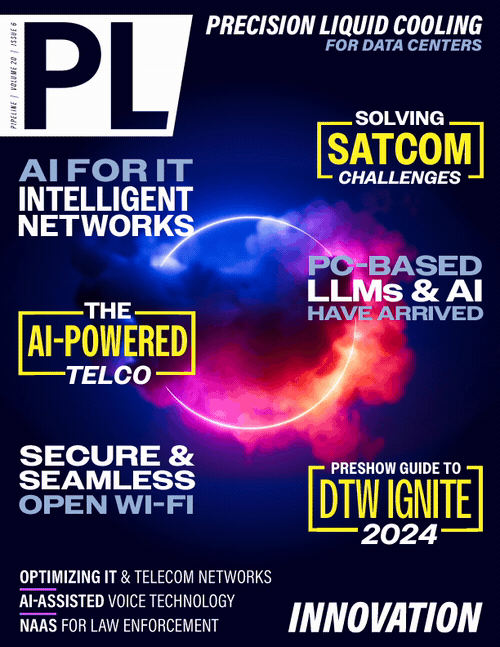Harnessing AI for Intelligent
Network Management
3. Service Level Guarantees
In today's digital age, businesses rely heavily on their network infrastructure to support critical applications and services. AI-powered network management solutions must prioritize service level assurance to meet the stringent requirements of modern enterprises. By incorporating AI algorithms, these solutions can proactively monitor and predict potential service disruptions, enabling proactive maintenance and troubleshooting. AI can also help in capacity planning and resource allocation, ensuring that the network has sufficient coverage, capacity, and availability to satisfy service level guarantees for both campus and branch connectivity.
A good example of guaranteeing the service is delivering the right signal strength for client devices. AI enabled network management can learn from the user's RF environment to detect any potential interferences, predict coverage gaps, and tune the wireless network parameters to close the coverage gaps, thus continuously delivering the coverage guarantees.
4. Deterministic Network Design
The most critical element in building a network to leverage AI is to take the time to install the right deterministic network architecture to ensure that the AI solution is getting access to high
volumes of accurate, contextual data. Any AI system lives or dies based on the quality of the data at its disposal. Without the right data upon which to base its decisions, the concept of
“garbage in, garbage out” applies, and that translates to poor performance at best, dangerous security breaches, and/or unhappy customers at worst. To achieve this, you need deep instrumentation
with physical and virtual sensors measuring the state of the network elements, its performance, and popular applications. We should add that this doesn’t mean we need device-level clients, but
just the ability to understand the data flowing from those devices.
AI is also capable of assisting in designing the network itself, with some systems able to assist in installation of the network, such as determining the appropriate placement for wireless access points (APs) and even confirming that the network elements and connecting cables are properly installed. By using AI at the very genesis of the network, IT is able to guarantee the system design will perform as required.
5. Cloud Native Architectures
Complementing the deterministic network design, AI-powered network management solutions must embrace cloud native architectures. These modern-day architectures fully support today’s software-centric systems and are a far cry from the 30-year-old network LAN architectures currently being championed by most incumbents. By adopting cloud software principles, AI-powered network management platforms can achieve scalability, flexibility, and agility.
Cloud native architectures enable the seamless deployment and orchestration of AI models and services across distributed network environments. They also facilitate the collection and processing
of vast amounts of network data, providing the foundation for advanced analytics and machine learning. By leveraging the elasticity and resilience of cloud platforms, AI-powered network
management solutions can adapt to the dynamic needs of modern networks.
Perhaps just as importantly, cloud native architectures facilitate the ability of IT to adopt a more service-centric model for network management, with many solutions that offer a “pay as you go”
or “pay for what you use” model leveraging cloud native architectures as part of their solutions. IT organizations have made it clear that this approach to technology solutions is their preferred
means of consuming applications and services. Why should the network be any different?
Conclusion
The advent of AI has opened up new possibilities for intelligent network management. By embracing the principles of closed loop automation, service level assurance, simplified management, deterministic network design, and cloud-native architectures, organizations can transform their network operations. AI-powered network management solutions enable proactive monitoring, automated troubleshooting, and intelligent optimization, reducing the burden on IT teams and ensuring optimal network performance and security. As networks continue to evolve and grow in complexity, the adoption of AI will become increasingly critical for businesses to stay competitive and deliver seamless digital experiences to their users.



















